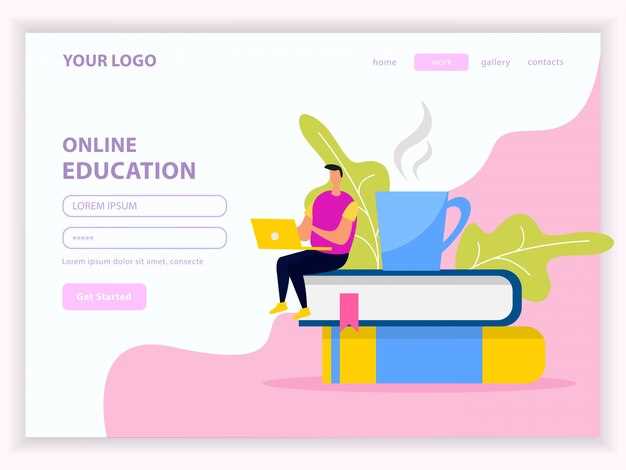
Choose open coursework to expand your knowledge without barriers. Access hundreds of materials from leading universities, updated regularly to match current academic requirements.
Benefit from flexible schedules that allow you to learn at your own pace, whether you prefer focused short modules or in-depth multi-week studies.
Track your progress with integrated tools that help measure your understanding and highlight areas for improvement. Join thousands who improve skills and boost their careers using open coursework right now.
Open Coursework for Quality Education and Easy Access

Choose open coursework that offers clear learning objectives and transparent evaluation criteria. Prioritize platforms with diverse subject areas that update content regularly to reflect current knowledge and practical skills.
Look for courses that:
- Provide downloadable materials and offline access for uninterrupted study.
- Include interactive exercises and assessments to track progress continuously.
- Feature peer discussions or mentorship options to deepen understanding.
- Offer certifications recognized by educational institutions or employers.
- Allow learners to study at their own pace without rigid deadlines.
Utilize courses with mobile-friendly interfaces to learn anytime and anywhere. Explore options with multilingual support to make education available to a wider audience.
Review user feedback to select options with high completion rates and positive outcomes. Combine these courses with practical projects or real-world applications to enhance skill retention and employability.
How to Select Open Coursework That Fits Your Learning Goals

Identify specific skills or knowledge you want to gain before exploring options. Align coursework topics directly with these objectives to maintain focus and relevance.
Check the course syllabus and materials to verify content depth and scope. Look for clear learning outcomes and measurable goals to ensure the course matches your expectations.
Consider the course format and time commitment. Choose flexible schedules or self-paced modules if balancing other responsibilities is necessary.
Evaluate the instructor’s background and teaching style. Prioritize courses led by educators with practical experience and positive learner feedback.
Assess available resources such as forums, supplementary readings, and assignments. Active engagement tools improve retention and practical application.
Review credential options like certificates or badges upon completion. These can add value to your resume or professional profile.
- Compare multiple platforms to find diverse perspectives on the same topic.
- Read learner reviews focusing on course effectiveness and clarity.
- Start with introductory modules when unsure about your commitment level.
- Use trial periods or free access options to gauge course suitability.
Regularly track progress and adjust course choices if they don’t align with evolving goals or learning preferences.
Steps to Access Open Coursework Platforms Without Technical Barriers
Use a stable internet connection to prevent interruptions. Aim for at least 10 Mbps upload and download speeds for smooth streaming and downloads.
Choose a browser compatible with the platform, such as the latest versions of Chrome, Firefox, or Edge. Keep the browser updated to avoid compatibility issues.
Disable browser extensions that may block scripts or pop-ups, as they can interfere with course content loading. If problems persist, try accessing the platform in incognito or private mode.
Adjust device settings to enable cookies and JavaScript, since most platforms rely on these for core functions like navigation and progress tracking.
Download course materials for offline use when available. This reduces dependence on continuous connectivity and allows learning at your convenience.
Use headphones or external speakers for clear audio during video lectures, and enable subtitles or transcripts to improve comprehension if needed.
Troubleshoot login issues by resetting passwords promptly and verifying email addresses before registration. Maintain updated contact details for account recovery options.
Access mobile applications offered by the platform to study on-the-go. These apps often streamline content display and reduce data consumption compared to browsers.
Clear cache and cookies regularly to eliminate outdated files that may cause loading errors or slow performance.
Consult the platform’s help center or community forums for specific technical guides and step-by-step solutions tailored to its interface and features.
Ways to Verify the Credibility and Quality of Open Coursework Materials
Check the author’s qualifications and affiliations to ensure they have expertise in the subject. Reputable contributors often list their academic or professional background alongside the course materials.
Evaluate the presence of citations and references. High-quality coursework includes links to primary sources, peer-reviewed papers, and authoritative publications that support the content.
Review the course’s update history. Frequent revisions indicate active maintenance and relevance to current knowledge and standards.
Analyze user feedback and ratings on the hosting platform. Learner reviews can reveal strengths and potential gaps in the material’s clarity and accuracy.
Verify if the coursework aligns with recognized standards or curricula from established educational institutions or industry bodies.
Use the following table to quickly assess these key factors:
| Verification Factor | What to Look For | Why It Matters |
|---|---|---|
| Author Credentials | Academic degrees, professional titles, verified profiles | Confirms subject expertise and trustworthiness |
| References and Sources | Scholarly articles, official reports, cited statistics | Supports accuracy and depth of content |
| Update Frequency | Recent revisions, version history | Maintains relevance and correctness over time |
| User Feedback | Detailed reviews, ratings, comments | Offers real-world insights into usefulness and quality |
| Course Alignment | Standards compliance, accredited endorsements | Ensures material meets established educational benchmarks |
Cross-reference coursework details with external sources like academic databases or professional networks to further validate claims. This extra step reduces the chance of relying on outdated or biased materials.
Combine multiple indicators from the checklist to form a well-rounded judgment about the coursework, rather than depending on a single proof point.
Integrating Open Coursework into Your Existing Study Routine
Set specific goals for each open coursework module. Identify topics that complement your current curriculum and allocate dedicated time slots to work on them regularly. This helps maintain focus and ensures steady progress without overwhelming your schedule.
Use active note-taking methods such as outlining key concepts and summarizing lessons to reinforce retention. Combine these notes with your regular study materials to create a cohesive knowledge base.
Schedule short review sessions after completing lessons to test your understanding. Apply quizzes or practice problems available within the coursework to pinpoint weak areas, then revisit those sections immediately.
Integrate group discussions or study partners where possible. Sharing insights on open coursework topics encourages deeper comprehension and exposes you to different perspectives that can clarify challenging material.
Leverage technology for reminders and time management. Apps with customizable alerts can ensure you stick to your planned sessions. Including open coursework alongside other commitments helps balance workload and maintain consistent engagement.
Track your progress using simple tools like checklists or progress bars provided by the platform. Regularly reviewing achievements boosts motivation and highlights areas needing extra attention.
Tracking Progress and Applying Knowledge from Open Coursework
Set clear benchmarks after each module to measure your understanding. Use tools like digital quizzes or self-assessment checklists to identify strengths and areas needing improvement. Regularly review notes and create summary sheets to reinforce retention.
Integrate learned concepts by working on practical projects related to your coursework. Applying theories through real-life tasks deepens comprehension and sharpens skills. Share your work with peers or mentors to receive constructive feedback and broaden perspectives.
Maintain a learning log that captures key takeaways, challenges faced, and solutions discovered. This habit promotes accountability and allows you to track growth over time. Adjust your study plan based on progress gaps to optimize learning outcomes.
Leverage available analytics from online platforms to monitor time spent and completion rates for different sections. Use these insights to focus efforts on lagging topics, ensuring balanced knowledge development. Schedule periodic reviews to solidify mastery and prepare for assessments.